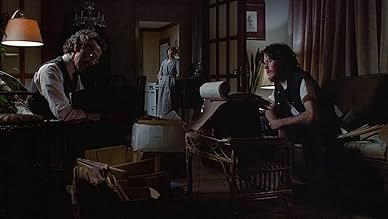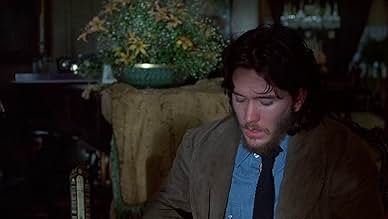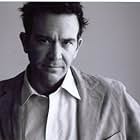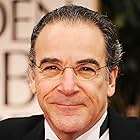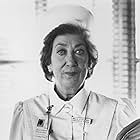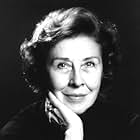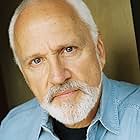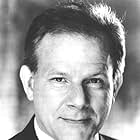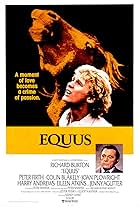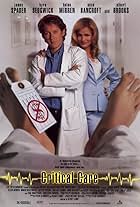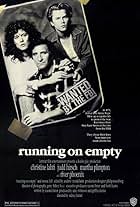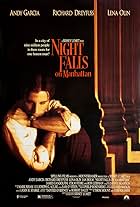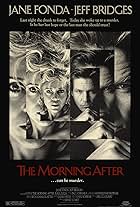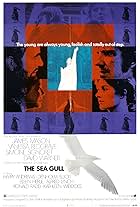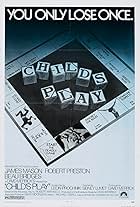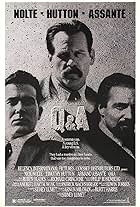IMDb RATING
6.6/10
1.7K
YOUR RATING
Daniel Isaacson attempts to determine the true complicity of his parents Paul and Rochelle Isaacson, who were executed for espionage in the 1950s.Daniel Isaacson attempts to determine the true complicity of his parents Paul and Rochelle Isaacson, who were executed for espionage in the 1950s.Daniel Isaacson attempts to determine the true complicity of his parents Paul and Rochelle Isaacson, who were executed for espionage in the 1950s.
Ilan Mitchell-Smith
- Young Daniel
- (as Ilan M. Mitchell-Smith)
Featured reviews
DANIEL
"Some day I shall understand"
Some words abouts the complex story. Paul and Rochelle Isaacson (Mandy Patinkin, Lindsay Crouse) were executed in the early 1950s for alleged espionage. Their children Daniel and Susan can't get over this. In the late 1960s, after an attempted suicide of his politically active sister Susan (Amanda Plummer), the rather unpolitical Daniel (Timothy Hutton) tries to find out what exactly happened in the past, tries to understand his parents' lives, tries to help his sister and to get along with his own life...
Sidney Lumet's film "Daniel" (1983) and E.L. Doctorow's novel "The Book of Daniel", which it is based upon, are inspired by the controversial Rosenberg case.
The film shows how children can be affected by the lives of their parents. And it is about the search of one's place in life. Lumet treated these themes again later in his fascinating "Running on Empty" (1988), starring River Phoenix, Christine Lahti and Judd Hirsch. Another theme of "Daniel" is the wish of human beings to understand their parents. Lumet described the movie in a Village Voice interview in the following way: "To me, "Daniel" is the story of a boy who buries himself with his parents, and spends the rest of his life trying to climb out of the grave." The film uses a complex flashback structure to tell its story. "Daniel" illuminates from Daniel Isaacson's view the history of the American left from the 1930s to the late 1960s, including the different left movements. In its criticism of death penalty and McCarthyism, "Daniel" is also a political statement.
Sidney Lumet is one of the great directors of the American cinema. Lumet himself is politically left-leaning, and "Daniel" is probably one of his most personal works. It was about seven years before he got the chance to realize this project. Many people worked on the film for the minimum salary set by the union. Timothy Hutton turned down a million-dollar offer on a film and played Daniel instead for about 25000 dollars.
And Lumet is right when he writes in his informative book "Making Movies": "Despite its critical and financial failure, I think it's one of the best pictures I've ever done." The film proves again Lumet's ability to tell complex, emotionally absorbing, unsentimental stories. Everything works in this uncompromising picture. A few of Lumet's films were marred by their scripts ("The Appointment", "Power", "Family Business", "A Stranger Among Us"). But Doctorow's screenplay for "Daniel" is excellent and extraordinarily multi-layered. Lumet's direction is sensitive and fascinating. Timothy Hutton (who later starred with Nick Nolte and Armand Assante in "Q & A"), Edward Asner (who plays the Isaacson's attorney), Lindsay Crouse (who also appeared in "Prince of the City" and "The Verdict"), Mandy Patinkin, Amanda Plummer and Ilan M. Mitchell-Smith (in the role of the young Daniel in the early 1950s) stand out in a fine cast. The impressive cinematography, which supports the flashback structure by a careful use of color filters, is by Andrzej Bartkowiak, who has worked on 11 Lumet pictures up to now. The rich soundtrack, mainly consisting of songs interpreted by Paul Robeson, perfectly fits and illustrates the film's themes. The editing is excellent as well (a good example is the brilliantly filmed end sequence).
There are many great moments in this film. For instance, there is a powerful rally scene in which you can feel that the Isaacson's children are afraid of the world around them. Another moving scene is a sequence in which young Daniel and young Susan (played by Ilan M. Mitchell-Smith and Jena Greco) walk through New York in search of their home. This scene, also showing Lumet's typically great use of the city of New York, reminded me of Michelangelo Antonioni.
I'm an admirer of Sidney Lumet's cinema. "Daniel" is one of his most underestimated motion pictures, really a must-see. Of course, don't expect standard Hollywood entertainment, but a serious work.
"Some day I shall understand"
Some words abouts the complex story. Paul and Rochelle Isaacson (Mandy Patinkin, Lindsay Crouse) were executed in the early 1950s for alleged espionage. Their children Daniel and Susan can't get over this. In the late 1960s, after an attempted suicide of his politically active sister Susan (Amanda Plummer), the rather unpolitical Daniel (Timothy Hutton) tries to find out what exactly happened in the past, tries to understand his parents' lives, tries to help his sister and to get along with his own life...
Sidney Lumet's film "Daniel" (1983) and E.L. Doctorow's novel "The Book of Daniel", which it is based upon, are inspired by the controversial Rosenberg case.
The film shows how children can be affected by the lives of their parents. And it is about the search of one's place in life. Lumet treated these themes again later in his fascinating "Running on Empty" (1988), starring River Phoenix, Christine Lahti and Judd Hirsch. Another theme of "Daniel" is the wish of human beings to understand their parents. Lumet described the movie in a Village Voice interview in the following way: "To me, "Daniel" is the story of a boy who buries himself with his parents, and spends the rest of his life trying to climb out of the grave." The film uses a complex flashback structure to tell its story. "Daniel" illuminates from Daniel Isaacson's view the history of the American left from the 1930s to the late 1960s, including the different left movements. In its criticism of death penalty and McCarthyism, "Daniel" is also a political statement.
Sidney Lumet is one of the great directors of the American cinema. Lumet himself is politically left-leaning, and "Daniel" is probably one of his most personal works. It was about seven years before he got the chance to realize this project. Many people worked on the film for the minimum salary set by the union. Timothy Hutton turned down a million-dollar offer on a film and played Daniel instead for about 25000 dollars.
And Lumet is right when he writes in his informative book "Making Movies": "Despite its critical and financial failure, I think it's one of the best pictures I've ever done." The film proves again Lumet's ability to tell complex, emotionally absorbing, unsentimental stories. Everything works in this uncompromising picture. A few of Lumet's films were marred by their scripts ("The Appointment", "Power", "Family Business", "A Stranger Among Us"). But Doctorow's screenplay for "Daniel" is excellent and extraordinarily multi-layered. Lumet's direction is sensitive and fascinating. Timothy Hutton (who later starred with Nick Nolte and Armand Assante in "Q & A"), Edward Asner (who plays the Isaacson's attorney), Lindsay Crouse (who also appeared in "Prince of the City" and "The Verdict"), Mandy Patinkin, Amanda Plummer and Ilan M. Mitchell-Smith (in the role of the young Daniel in the early 1950s) stand out in a fine cast. The impressive cinematography, which supports the flashback structure by a careful use of color filters, is by Andrzej Bartkowiak, who has worked on 11 Lumet pictures up to now. The rich soundtrack, mainly consisting of songs interpreted by Paul Robeson, perfectly fits and illustrates the film's themes. The editing is excellent as well (a good example is the brilliantly filmed end sequence).
There are many great moments in this film. For instance, there is a powerful rally scene in which you can feel that the Isaacson's children are afraid of the world around them. Another moving scene is a sequence in which young Daniel and young Susan (played by Ilan M. Mitchell-Smith and Jena Greco) walk through New York in search of their home. This scene, also showing Lumet's typically great use of the city of New York, reminded me of Michelangelo Antonioni.
I'm an admirer of Sidney Lumet's cinema. "Daniel" is one of his most underestimated motion pictures, really a must-see. Of course, don't expect standard Hollywood entertainment, but a serious work.
Daniel is one of Sidney Lumet's favourites of his own films. He cites it even before Dog Day Afternoon, Network and 12 Angry Men. I guess when a film isn't as assimilated into pop culture as they are you can keep it closer to your heart. It's a shame, the film deserves so much more attention. This is no half hearted venture. It's emotionally charged and meticulous in all its details. From the textured cinematography (great use of colour changes for past and present), slick editing and rousing performances, you can feel the heat of the passion poured into it. And it hits some real movie magic moments, especially with Mandy Patinkin. Perhaps the problem is that it lacks a real hook to real you in. Its purpose is clear, the activism is justified, but it feels quite specific to its two time periods and struggles to resonate the same way now. It's a film that really needed to strike its chord when it was released. But that doesn't hold it back from being a deeply poignant experience, the highlight being Timothy Hutton's powerful performance as the titular protagonist.
8/10
8/10
This movie,impressively directed and played by both the main and supporting actors,poses to us a question:do parents have the right to sacrifice the future of their children on the altar of their ideology? That their ideology and practice,Communism and its world wide tentacles,was seriously flawed and misguided,is more clear today than it was at the time the movie was made, before the collapse of the Soviet Union and its underpinning ideology. The plot centers over the attempts of convicted spies(for the Soviet Union)son to uncover a truth he believes exists,only to find a different reality,very perplexing. The message one may take from the plot is that evaluating one's parent from the perspective of an adult is both difficult and painful,truly entering a lions den.
Daniel, dear fellow movie lovers, is my favorite movie of all time.
I can barely list all the reasons why I love this movie. I have recommended it to many people, and frankly no one has basically reacted to it as enthusiastically as i have.
But guess what, I don't care. This movie resonates with me. Thanks to E.L. Doctorow, Lumet provides us -- specifically -- with a devastating examination of the nature of political martyrdom and its effect on the martyr's family. We look at the critical intersection between family and ideology.
Beyond the scorching power of the plot and the highly ambitious story line, the Daniel cast is superb and they play their roles to tremendous effect, with a couple of minor exceptions. I don't remember how Paul Isaacson was portrayed in Doctorow's novel, but the casting of the powerful and macho Mandy Patinkin as the Pauly character directly modeled on Julius Rosenberg (who at least from his photos appeared to be nebish-y and not projecting any degree of the virility Patinkin offers) was perfect. What a wonderful liberty Lumet took.
First-rate acting also comes from the tortured siblings Timothy Hutton and Amanda Plummer, plus Ed Asner, Lindsay Crouse, Tovah Feldshuh, Ellen Barkin and numerous supporting players.
The target audience for Daniel, perhaps, is the person who (like me) at some time(s) in their life has allowed political action to become more important than ostensible self-interest or family interest. Unless you have personally had this experience, I am guessing you will relate less to this movie.
But please don't let that stop you! This is a martyr movie I am sure many non-martyrs can enjoy.
I can rattle off no less than a half dozen scenes that I consider timeless and priceless. Don't get me started.
OK, I relent. I will say that the Peekskill riot scene is memorable and special. Every time I am on a bus, and it makes a turn or goes through the woods or whatever or whatever, I think of this scene. The scene's intense crucifixion/climax is excruciating to watch.
And the kids' return to the shuttered Bronx apartment -- and attorney Ed Asner explaining to the befuddled aunt that, 'Lady, these people are in trouble!' -- and the Union Square rally -- and the Sing Sing scene -- and omigod the Paul Robeson score -- and and and and...
When Lumet got his special Oscar a yr or so ago i thought, oh good, finally, the world will hear about Daniel, my #1 movie. But I was deflated when it got mentioned maybe not at all or at best in passing. Some newspaper movie critics covering the award, alluded to the 'underrated' Daniel. Sigh ****.
Well, dear friends, lemme just say that 'underrated' is a gross exaggeration. In my mind, I cannot overrate this movie.
Thus -- I exhort all IMDb people to watch this movie, get past the early Patinkin Russian folk dance scene in the apartment, and stay with it! I hope you will begin to appreciate Daniel just half as much as I do.
And thank you, Sidney Lumet.
I can barely list all the reasons why I love this movie. I have recommended it to many people, and frankly no one has basically reacted to it as enthusiastically as i have.
But guess what, I don't care. This movie resonates with me. Thanks to E.L. Doctorow, Lumet provides us -- specifically -- with a devastating examination of the nature of political martyrdom and its effect on the martyr's family. We look at the critical intersection between family and ideology.
Beyond the scorching power of the plot and the highly ambitious story line, the Daniel cast is superb and they play their roles to tremendous effect, with a couple of minor exceptions. I don't remember how Paul Isaacson was portrayed in Doctorow's novel, but the casting of the powerful and macho Mandy Patinkin as the Pauly character directly modeled on Julius Rosenberg (who at least from his photos appeared to be nebish-y and not projecting any degree of the virility Patinkin offers) was perfect. What a wonderful liberty Lumet took.
First-rate acting also comes from the tortured siblings Timothy Hutton and Amanda Plummer, plus Ed Asner, Lindsay Crouse, Tovah Feldshuh, Ellen Barkin and numerous supporting players.
The target audience for Daniel, perhaps, is the person who (like me) at some time(s) in their life has allowed political action to become more important than ostensible self-interest or family interest. Unless you have personally had this experience, I am guessing you will relate less to this movie.
But please don't let that stop you! This is a martyr movie I am sure many non-martyrs can enjoy.
I can rattle off no less than a half dozen scenes that I consider timeless and priceless. Don't get me started.
OK, I relent. I will say that the Peekskill riot scene is memorable and special. Every time I am on a bus, and it makes a turn or goes through the woods or whatever or whatever, I think of this scene. The scene's intense crucifixion/climax is excruciating to watch.
And the kids' return to the shuttered Bronx apartment -- and attorney Ed Asner explaining to the befuddled aunt that, 'Lady, these people are in trouble!' -- and the Union Square rally -- and the Sing Sing scene -- and omigod the Paul Robeson score -- and and and and...
When Lumet got his special Oscar a yr or so ago i thought, oh good, finally, the world will hear about Daniel, my #1 movie. But I was deflated when it got mentioned maybe not at all or at best in passing. Some newspaper movie critics covering the award, alluded to the 'underrated' Daniel. Sigh ****.
Well, dear friends, lemme just say that 'underrated' is a gross exaggeration. In my mind, I cannot overrate this movie.
Thus -- I exhort all IMDb people to watch this movie, get past the early Patinkin Russian folk dance scene in the apartment, and stay with it! I hope you will begin to appreciate Daniel just half as much as I do.
And thank you, Sidney Lumet.
In 1951, Julius and Ethel Rosenberg were tried and convicted of conspiring to deliver atomic secrets to Russia during the 40s (when the U.S. and Russia were wartime allies). The trial took place in an atmosphere of anti-Communist hysteria.
Prior to their arrest, the following events took place: State Department official Alger Hiss was convicted of perjury, Senator Joseph McCarthy launched a campaign to rid the State Department of "subversives", British physicist Klaus Fuchs was convicted of spying for the Russians, Russia exploded an atomic bomb, and the Korean War broke out.
The chief prosecution witnesses were chemist Harry Gold who admitted he had never seen or known either Rosenberg, and Ethel's brother David Greenglass, a machinist working on the Manhattan project in Los Alamos, who provided the jury with details of the Rosenberg's involvement in espionage. Ethel's guilt was based solely on Greenglass' testimony that she had typed up classified secrets (this account was later acknowledged by Greenglass to be false).
In 1953, Julius and Ethel were executed after numerous appeals for clemency had been rejected. The executions caused deep divisions among the American people and the Rosenbergs were the last Americans to be executed for sabotage. Fifty years later, we are still trying to come to terms with the case.
Daniel, a 1983 film based on the novel "The Book of Daniel" by E.L. Doctorow, is a fictional account of the trial and execution of Julius and Ethel Rosenberg (called Paul and Rochelle Isaacson in the movie) focusing on how these events affected their children. Turning in a strong performance, Timothy Hutton plays their son Daniel, who is searching for the truth about his parent's guilt or innocence. Amanda Plummer is his sister Susan (in reality, the Rosenbergs had two sons Robert and Michael) who suffers a mental breakdown as a result of the execution, and Ed Asner portrays the Isaacson's lawyer who did his best for the parents, who are shown as self-righteous and uncooperative.
The movie unfolds in numerous flashbacks delineated by color filters (blue for current, orange for past). Lumet shows the Isaacsons (Mandy Patinkin and Lindsay Crouse) participation in protest movements and Communist Party activities and depicts their arrest, confinement, trial, and execution. The film does not make any statement as to their guilt or innocence. However, in an emotional scene with their accuser's sister, Daniel speculates that Rochelle's brother Selig Mindish (Joseph Leon) fingered the Isaacsons to protect other Party members.
Most of the film centers on the parent's relationship with the children. While showing how much the parents loved them, it also makes clear that their dedication to political causes transcended everything else in their lives (they could have been freed if they named names but their politics dictated that they would not cooperate with the FBI).
Daniel successfully captures the hysteria of the period and the suffering of the children who were shunted between overburdened relatives, children's shelters, and foster parents. In one of the most moving scenes in the film, Daniel and Susan run away from the shelter to walk the streets of New York looking for their old home, while in the background Paul Robeson sings, "This Little Light of Mine".
Though Daniel is a powerful and moving drama, the film is flawed by Patinkin's over-the-top performance, fake Jewish accents, and confusing jumps between different time periods. I also thought Susan's character was created solely to manipulate the emotions. Is Daniel is a great film? No, I don't think it is, but I do love it for its passion and for the courage it shows in bringing to life a difficult and troubling episode in American history.
Prior to their arrest, the following events took place: State Department official Alger Hiss was convicted of perjury, Senator Joseph McCarthy launched a campaign to rid the State Department of "subversives", British physicist Klaus Fuchs was convicted of spying for the Russians, Russia exploded an atomic bomb, and the Korean War broke out.
The chief prosecution witnesses were chemist Harry Gold who admitted he had never seen or known either Rosenberg, and Ethel's brother David Greenglass, a machinist working on the Manhattan project in Los Alamos, who provided the jury with details of the Rosenberg's involvement in espionage. Ethel's guilt was based solely on Greenglass' testimony that she had typed up classified secrets (this account was later acknowledged by Greenglass to be false).
In 1953, Julius and Ethel were executed after numerous appeals for clemency had been rejected. The executions caused deep divisions among the American people and the Rosenbergs were the last Americans to be executed for sabotage. Fifty years later, we are still trying to come to terms with the case.
Daniel, a 1983 film based on the novel "The Book of Daniel" by E.L. Doctorow, is a fictional account of the trial and execution of Julius and Ethel Rosenberg (called Paul and Rochelle Isaacson in the movie) focusing on how these events affected their children. Turning in a strong performance, Timothy Hutton plays their son Daniel, who is searching for the truth about his parent's guilt or innocence. Amanda Plummer is his sister Susan (in reality, the Rosenbergs had two sons Robert and Michael) who suffers a mental breakdown as a result of the execution, and Ed Asner portrays the Isaacson's lawyer who did his best for the parents, who are shown as self-righteous and uncooperative.
The movie unfolds in numerous flashbacks delineated by color filters (blue for current, orange for past). Lumet shows the Isaacsons (Mandy Patinkin and Lindsay Crouse) participation in protest movements and Communist Party activities and depicts their arrest, confinement, trial, and execution. The film does not make any statement as to their guilt or innocence. However, in an emotional scene with their accuser's sister, Daniel speculates that Rochelle's brother Selig Mindish (Joseph Leon) fingered the Isaacsons to protect other Party members.
Most of the film centers on the parent's relationship with the children. While showing how much the parents loved them, it also makes clear that their dedication to political causes transcended everything else in their lives (they could have been freed if they named names but their politics dictated that they would not cooperate with the FBI).
Daniel successfully captures the hysteria of the period and the suffering of the children who were shunted between overburdened relatives, children's shelters, and foster parents. In one of the most moving scenes in the film, Daniel and Susan run away from the shelter to walk the streets of New York looking for their old home, while in the background Paul Robeson sings, "This Little Light of Mine".
Though Daniel is a powerful and moving drama, the film is flawed by Patinkin's over-the-top performance, fake Jewish accents, and confusing jumps between different time periods. I also thought Susan's character was created solely to manipulate the emotions. Is Daniel is a great film? No, I don't think it is, but I do love it for its passion and for the courage it shows in bringing to life a difficult and troubling episode in American history.
Did you know
- TriviaReportedly, actor Timothy Hutton wanted his part so much he had his agent constantly telephone director Sidney Lumet to organize an interview. Later, Hutton flew to New York at his own cost, met with Lumet, and within twenty minutes had secured the role.
- Quotes
Paul Isaacson: If they didn't arrest people, they'd have nothing to do.
- Alternate versionsNBC edited 33 minutes from this film for its 1987 network television premiere.
- ConnectionsFeatured in By Sidney Lumet (2015)
- How long is Daniel?Powered by Alexa
Details
- Release date
- Countries of origin
- Languages
- Also known as
- Дэниел
- Filming locations
- Production companies
- See more company credits at IMDbPro
Box office
- Gross US & Canada
- $687,475
- Gross worldwide
- $687,475
Contribute to this page
Suggest an edit or add missing content







